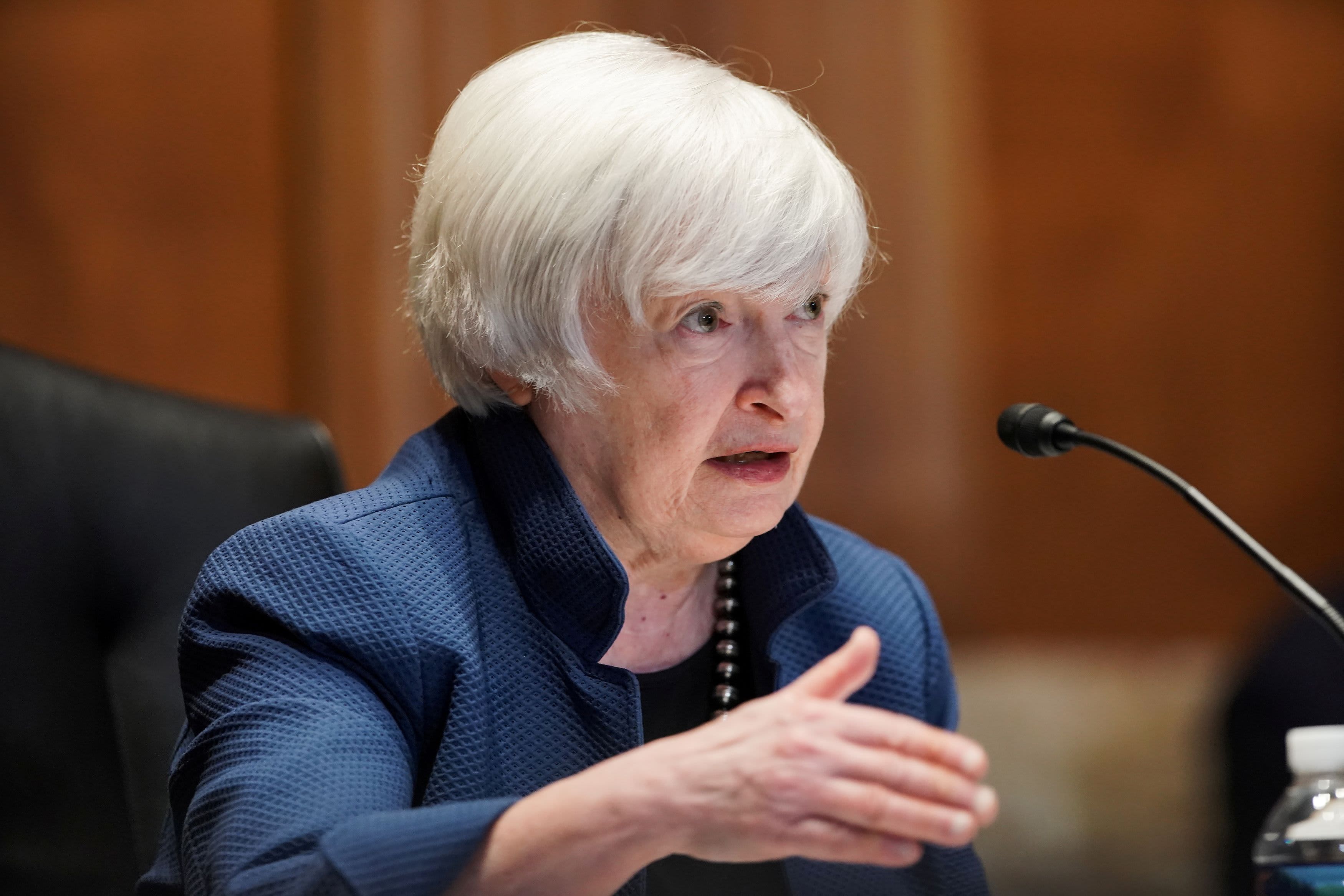
U.S. Treasury Secretary Janet Yellen answers questions during the Senate Appropriations Subcommittee hearing to examine the FY22 budget request for the Treasury Department on Capitol Hill in Washington, DC, June 23, 2021.
Greg Nash | Pool | Reuters
Treasury Secretary Janet Yellen on Friday warned Congress that her department will need to embark on “extraordinary measures” on August 2 to prevent the U.S. government from defaulting if lawmakers are unable to strike a deal to raise or extend the debt ceiling.
In a letter to House Speaker Nancy Pelosi, D-Calif., Yellen put lawmakers on notice that the Treasury Department will at the end of July suspend the sale of bonds, the avenue by which the U.S. finances its debt obligations.
After August 2 and barring a debt limit agreement, Treasury will start taking “extraordinary measures” to pay for Congress’ legal and financial obligations, a temporary fix that allows the secretary to tap additional government accounts for a period of weeks.
“The period of time that extraordinary measures may last is subject to considerable uncertainty due to a variety of factors, including the challenges of forecasting the payments and receipts of the U.S. government months into the future, exacerbated by the heightened uncertainty in payments and receipts related to the economic impact of the pandemic,” Yellen told Pelosi in a letter.
The message between the Treasury secretary and the House Speaker is a required formality should the outstanding debt of U.S. near its statutory limit. While the extraordinary measures have been deployed in the past to prevent a default, it’s unclear how long Yellen’s emergency capital will last in the face of unprecedented stimulus efforts sparked by the Covid-19 crisis.
While the United States has never defaulted on its debt, recent history shows that getting uncomfortably close to it can create chaos. In 2011, House Republicans’ refusal to pass a debt ceiling increase led to a downgrade of the U.S. sovereign credit rating that upset financial markets.
Economists say default, though extremely unlikely, would be a catastrophic event and would pose a significant threat to several sectors of the American economy.
Asked about Yellen’s letter, White House press secretary Jen Psaki stressed that the communication should be taken in context and noted that similar letters have been sent in prior administrations.
The letter is “standard practice for Treasury secretaries when a debt limit is going to be reimposed,” she said Friday afternoon. “During the previous two administrations, the Treasury secretary sent nearly 50 letters to the Hill on the debt limit, some of which were very similar, in wording and asks and updates, to this letter.”
This is breaking news. Please check back for updates.




